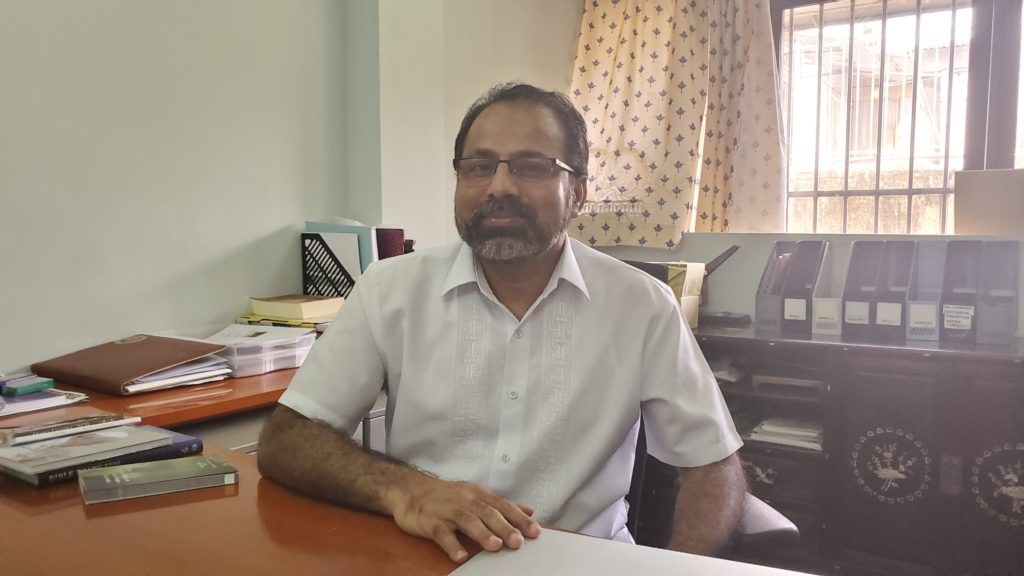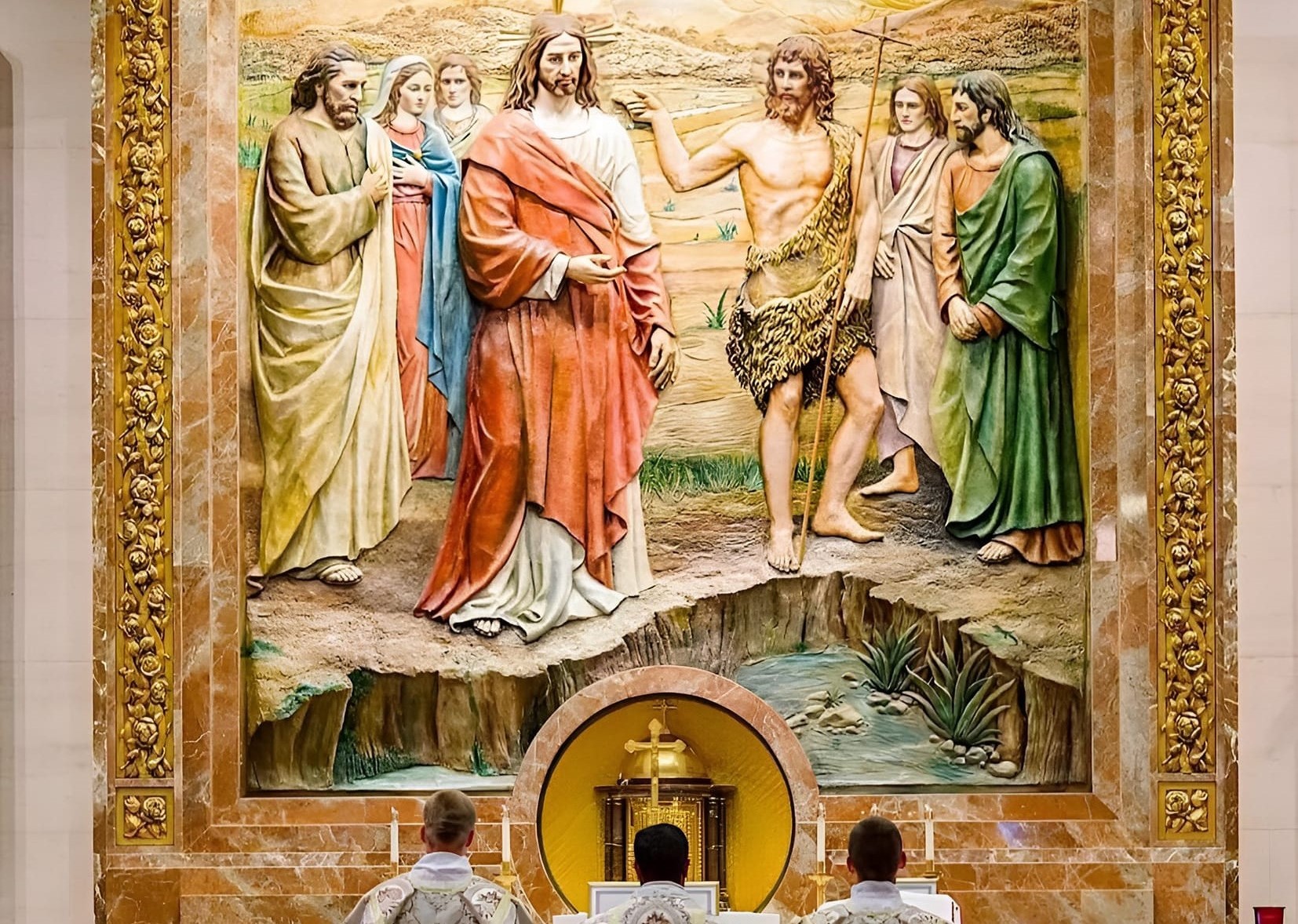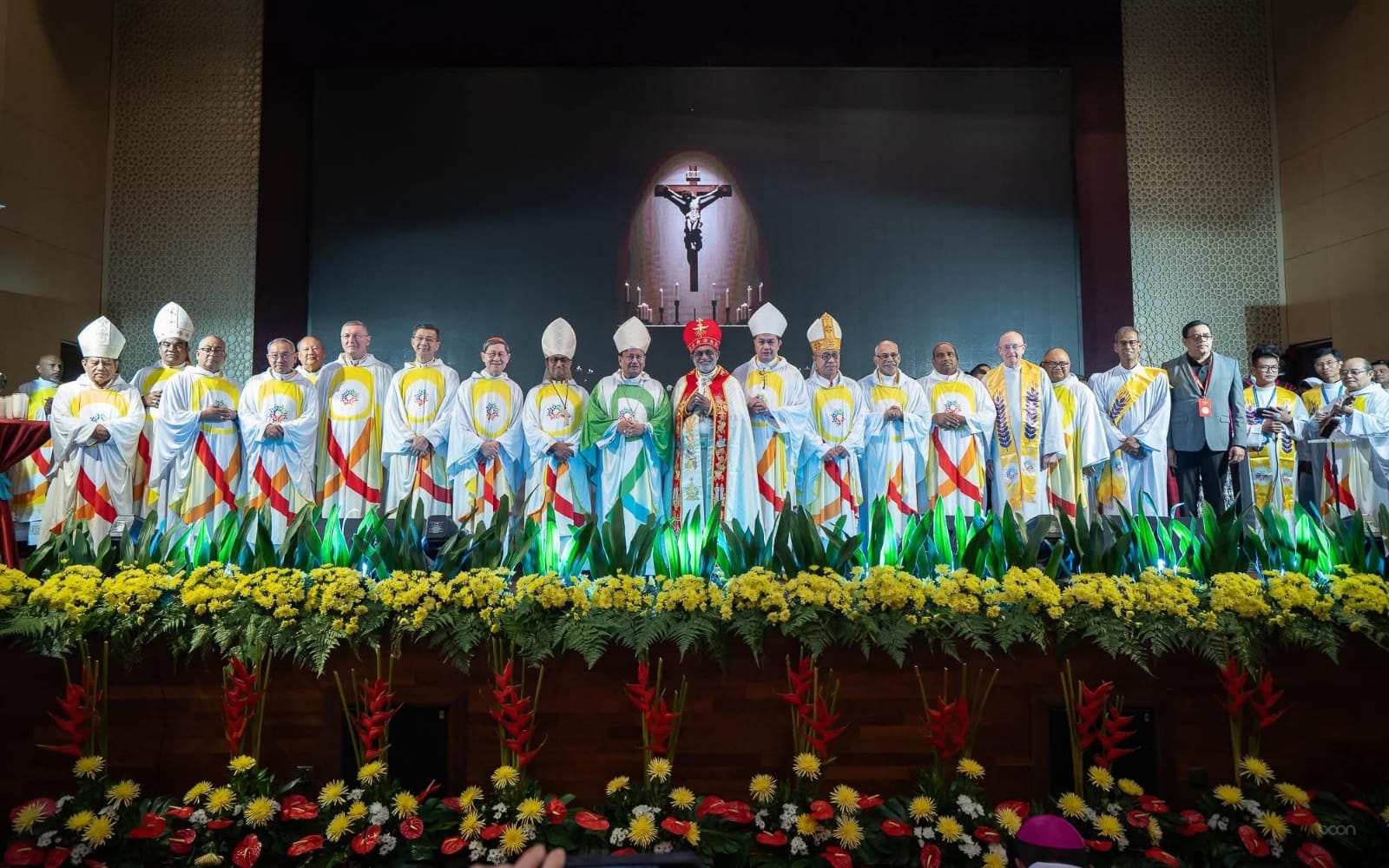– Marco Carvalho
The new Chinese-language translation of the Holy Bible that the Claretians have been working on for the past ten years should be ready for publication within two years. The information was given to “O Clarim” by Father Jijo Kandamkulathy CMF. In a lengthy interview, the current head of the local branch of the Claretian Publications discusses the publishing work conducted by the Congregation founded 170 years ago by St. Anthony Mary Claret, the challenges the Catholic Church faces in Asia and the current relations between the People’s Republic of China and the Vatican.
The Claretian Missionaries have been founded 170 years ago and have, ever since, shown a great resilience and faithfulness to their ideal of promoting evangelization through all means possible. How did the mission of the Congregation of Missionaries, Sons of the Immaculate Heart of the Blessed Virgin Mary has changed ever since?
Jijo Kandamkulathy: I am glad that you have used the term “resilience”. It has not been easy for the Congregation right from its inception. Saint Anthony Mary Claret started it in 1849, on July 16th, but persecutions – and difficulties- came and the founder had to die in exile. Then came the persecution in 1936. During the Spanish Civil War, more than two hundred Claretian missionaries got killed, martyred. They were canonized in the last few years. Well, these have been the challenges that the early Church also faced and some of them have been instrumental in its very growth.
For example, the persecution that followed the martyrdom of Saint Stephen, in the early Church, was what helped to spread the teachings of Christ. People had to run away from Jerusalem and they went all over the places. They started preaching in the places they reached. This spirit continued. I think that is how the Holy Spirit works: through challenges, it makes its members adapt to all.
There have been many transitions since the beginning of the Congregation. Originally, the Congregation picked up only priests for preaching the Word of God. Gradually, we started receiving candidates, giving them training and making them priests, so it became a full-fledged Congregation for Religious Life . Then it also started accepting brothers into the fold, so there has been a slow organic growth of this Congregation.
It also grew in a geographical sense. Initially, there was a spontaneous growth in Spain and Europe and then into the Spanish speaking colonies. A significant step came later when we came to China, in 1929. We are celebrating 90 years this year of our initial foundation in China. Nevertheless, China was also beset with problems and within 30 years we had to move away from there. In 1952, when we left China, we went through another Pentecostal experience. The missionaries that were there had to move to different places, like the Philippines and Japan, where we started new foundations.
Much later, in the 1960’s, with the arrival of a new Superior-General, a German – Peter Schutz – we started spreading a little more deliberately into the Asian countries, the English-speaking world and also to Africa. There have been a lot of transitions, but in spite of all the transitions, the Congregation was held together by a prophetic spirit of its charism. A prophetic spirit that makes you capable of looking at the world differently, from God’s perspective. That takes a lot of daring to do and that daring action or the motivational spirit of the Congregation, has run right through from the inception until today. We still have martyrs in the recent history. Still, some of us who are working in the peripheries or in the marginal areas are regularly under trial. Just last month we had two of our priests kidnapped in Africa.
In which country in Africa?
J.K: In Cameroon. The provincial of that place was also kidnapped last year. We are working in frontier areas, in the peripheries and we face this challenges very courageously. This is the spirit that kept us bound together in all these transitions.
Despite those risks, are there still many people willing to follow the example of St. Anthony Mary Claret? The Congregation faces a lack of vocations or the acceptance of lay brothers helped to diffuse this issue?
J.K: Well, we didn’t start accepting brothers only when the vocations for priesthood dropped. We accepted brothers even when we had plenty of vocations for priesthood. But, geographically, there have been changes. Europe has given plenty of vocations earlier. Now, that trend has moved to Asia and Africa. There has not been a significant drop in the total number of vocations. They only have changed from Europe to Asian and African countries. The number of vocations is still not a challenge. A greater challenge would be the loss of the charism. This is what I consider more important: preaching the Word of God as servants, as witnesses and as messengers of the Gospel. This is a special charism given to the Congregation. If this charism is not spread to the faithful, to its own members, we risk the loss of a gift to the Church. It is important to keep this charisma alive in its inspirational, seminal form in the hearts of the members and the faithful as a whole. I think this is also one of the challenges of the Church, to keep the values of Christ alive within the structure – the mammoth structure – of the Church.
The Claretians have made a name for themselves as publishers and propagators of the Gospels and the Word of God. It is an important aspect of the work that the Congregation does in Macau. What’s the purpose of having a publishing house in this small “Babel” that is Macau? Is Macau one of the right places to be?
J.K: Publication is a ministry that we have been continuing right from our inception. St. Anthony Mary Claret was a prolific writer and publisher. He has over two hundred published works to his credit. He wrote prolifically on several subjects, from agriculture to engineering. He was actually an engineer, a textile engineer. We continued that spirit through the Congregation and now we have 14 publishing houses, together called The Claret Publishing Group. Macau is significant as an opening to China.
we began two important ministries of the Claretians began here. The translation of the Chinese Bible and the Chinese Daily Gospel. Father Rossa, began a new translation of the Chinese Bible, here and continued for nine, ten years and that ministry is now moved to his office in Hong Kong. One of our main ministries is the publication of the Bible in different languages. I am talking about new translations. We have translated the Bible into twelve languages by now.
One of the tasks that the Claretians had in their hands in the last decade was precisely a new Chinese translation of the Bible…
J.K: This translation of the Bible is not exactly under the Claretians Publications, but under the Pastoral Bible Foundation, which is a sister concern of the 14 publishing houses that I was mentioning before. This is under Father Rossa. We have been working on the Chinese translation of the Bible over the last ten years.
How is this important? New translations are important and necessary all over the world. Language is very dynamic and, so, if you do not get fresh translations that will talk the language of the present society and culture, what you’ll get are antiques. An old translation is good to look at, but we won’t understand it. It will become hieroglyphics; only the experts can understand it. A timely translation of the Word of God is very important so that the Word of God can be transferred to the people without intermediaries or experts. What we did with this translation is that we have given commentaries underneath in every page. This will help scholars studying the Bible to get immediate references, which are updated on the latest researches that have been made. On the side inboxes, you have an interpretation, a meditation, a prayer on that passage of the Bible. It is a “lectio divina” version, which is meant for personal prayer or group prayer, so that the Word of God is shared, without the help of an expert. This has been the concept behind this translation. I think this a very significant contribution to Chinese world where catechesis is becoming more and more difficult.
As you were saying, this is a work in progress. It is not yet finished. When do you think that this mammoth task will be completed?
J.K: The New Testament was completed four years ago. The Old Testament translation is completed, but after the translation it goes through layers of editing and reading and re-reading. We hope to go through those re-readings for at least two more years. We hope to publish this new translation of the Bible, as a whole, in two years time.
You were saying that this new translations of the Bible is important for the Chinese speaking world, but it is particularly relevant for the Mainland Catholics. Some of the books that the Claretian Publications produce here in Macau are distributed in China, thanks to an agreement with the Patriotic Church…
J.K: We don’t have, actually, any agreement with the Patriotic Association. We have an agreement with a licensed publisher in China, with whom we work together. We do all the translations and choice of the books and give them the rights to publish those. This totally motivated by our will to evangelize. Of course, in those days when we began, if you had to do a mammoth task like this, to get a permission to get a certain book published in China, of course we had to do some lobbying. We have gone to different people who could help us to obtain a permission to get the book published, but there was no agreement with the patriotic association whatsoever.
Do you think that, through that publisher in China, it is possible that this news translation of the Bible could reach the Chinese parishes?
J.K: Definitely. We have done a second edition of the New Testament already. But we also reach the Bible to people through the Daily Gospel. The “Daily Gospel,” a small book for a daily liturgical reading of the Bible. We print about 100 thousand copies annually to be distributed in China. Probably, the text is downloaded three times that number through the Internet and mobile applications.
This is one of the latest books the Claretian Publications have published. What is the “Daily Gospel 2020” all about?
J.K: The “Daily Gospel” is a project started 33 years ago in the Philippines by father Alberto Rossa. In this book we give the Gospel of the daily mass and a reflection, which helps people to meditate. You can carry this book on your handbag. People can read it through their journey, in their office free time. This is a way of sanctifying the hours, the life of the people, by promoting a constant presence of the Word of God. Now this is published in 19 languages by the Claretians, over a million copies every year. Probably, an equal number of copies is published by publishers of other Congregations. This has been a daily spiritual fodder for many Catholics, imagine, over a million Catholics in all over the world every year! I think this has been a wonderful achievement.
What other projects, apart from the translation of the Bible and the “Daily Gospel” do you have in your hands here in Macau?
J.K: We have been largely focusing on projects that are close to the Word of God, but also documents and books that we see as pioneering, like the documents written by Pope Francis because he brought a new lease of life into the Church, a new breath into the Church. We went on to publish his ideas and his spirituality. We have been continuously publishing the books of Pope Francis. We published the latest one last month. It’s a book on consecrated life.
There’s another one coming up next month. It’s the “Four Gospels.” It has only, the four gospels with commentaries. Our aim is to reach Christians and non-Christians alike. The book will be published in traditional Chinese. The idea is that, in the year of the Word of God, we can reach out to the people, including non-Christian or non-Catholic populations. This volume is made with a fresh presentation, with attractive modern art covers.
China and the Vatican have signed an agreement barely one year ago. What kind of perspectives does this agreement bring for the Claretians. Do you think that it might be possible for the Claretian Missionaries to return to China in a near future?
J.K: After the agreement, some of the clandestine work done by different agencies in China has been reduced. Before, some people used to go to China to have some meetings and other initiatives without informing properly the Chinese authorities. Now we have begun to do it with official information. We have not had any problem so far. That has been one significant change. This has been a change. We are also able to reach to dioceses which we were reluctant to go formerly. This is what’s happening to those who are helping Chinese Church from outside. But in China, the new policies coming after the agreement, have not made anything easier, but I think, ultimately, history will appreciate this agreement. The Claretian charism will not be lost from China, this is for sure!


 Follow
Follow


